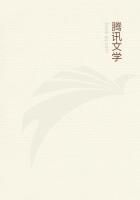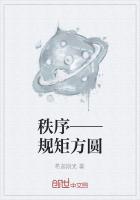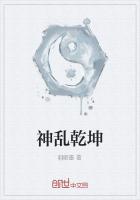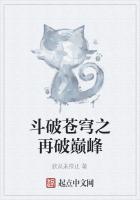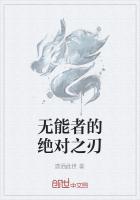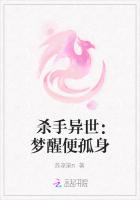To say that a man is an idealist is merely to say that he is a man; but, nevertheless, it might be possible to effect some valid distinction between one kind of idealist and another.
One possible distinction, for instance, could be effected by saying that humanity is divided into conscious idealists and unconscious idealists.
In a similar way, humanity is divided into conscious ritualists and.
unconscious ritualists. The curious thing is, in that example as in others, that it is the conscious ritualism which is comparatively ******, the unconscious ritual which is really heavy and complicated.
The ritual which is comparatively rude and straightforward is the ritual which people call "ritualistic." It consists of plain things like bread and wine and fire, and men falling on their faces.
But the ritual which is really complex, and many coloured, and elaborate, and needlessly formal, is the ritual which people enact without knowing it. It consists not of plain things like wine and fire, but of really peculiar, and local, and exceptional, and ingenious things--things like door-mats, and door-knockers, and electric bells, and silk hats, and white ties, and shiny cards, and confetti.
The truth is that the modern man scarcely ever gets back to very old and ****** things except when he is performing some religious mummery.
The modern man can hardly get away from ritual except by entering a ritualistic church. In the case of these old and mystical formalities we can at least say that the ritual is not mere ritual;that the symbols employed are in most cases symbols which belong to a primary human poetry. The most ferocious opponent of the Christian ceremonials must admit that if Catholicism had not instituted the bread and wine, somebody else would most probably have done so.
Any one with a poetical instinct will admit that to the ordinary human instinct bread symbolizes something which cannot very easily be symbolized otherwise; that wine, to the ordinary human instinct, symbolizes something which cannot very easily be symbolized otherwise.
But white ties in the evening are ritual, and nothing else but ritual.
No one would pretend that white ties in the evening are primary and poetical. Nobody would maintain that the ordinary human instinct would in any age or country tend to symbolize the idea of evening by a white necktie. Rather, the ordinary human instinct would, I imagine, tend to symbolize evening by cravats with some of the colours of the sunset, not white neckties, but tawny or crimson neckties--neckties of purple or olive, or some darkened gold. Mr. J. A. Kensit, for example, is under the impression that he is not a ritualist.
But the daily life of Mr. J. A. Kensit, like that of any ordinary modern man, is, as a matter of fact, one continual and compressed catalogue of mystical mummery and flummery. To take one instance out of an inevitable hundred: I imagine that Mr. Kensit takes off his hat to a lady; and what can be more solemn and absurd, considered in the abstract, than, symbolizing the existence of the other *** by taking off a portion of your clothing and waving it in the air?
This, I repeat, is not a natural and primitive symbol, like fire or food.
A man might just as well have to take off his waistcoat to a lady;and if a man, by the social ritual of his civilization, had to take off his waistcoat to a lady, every chivalrous and sensible man would take off his waistcoat to a lady. In short, Mr. Kensit, and those who agree with him, may think, and quite sincerely think, that men give too much incense and ceremonial to their adoration of the other world.
But nobody thinks that he can give too much incense and ceremonial to the adoration of this world. All men, then, are ritualists, but are either conscious or unconscious ritualists. The conscious ritualists are generally satisfied with a few very ****** and elementary signs;the unconscious ritualists are not satisfied with anything short of the whole of human life, being almost insanely ritualistic.
The first is called a ritualist because he invents and remembers one rite; the other is called an anti-ritualist because he obeys and forgets a thousand. And a somewhat similar distinction to this which I have drawn with some unavoidable length, between the conscious ritualist and the unconscious ritualist, exists between the conscious idealist and the unconscious idealist.
It is idle to inveigh against cynics and materialists--there are no cynics, there are no materialists. Every man is idealistic;only it so often happens that he has the wrong ideal.
Every man is incurably sentimental; but, unfortunately, it is so often a false sentiment. When we talk, for instance, of some unscrupulous commercial figure, and say that he would do anything for money, we use quite an inaccurate expression, and we slander him very much.
He would not do anything for money. He would do some things for money;he would sell his soul for money, for instance; and, as Mirabeau humorously said, he would be quite wise "to take money for muck."He would oppress humanity for money; but then it happens that humanity and the soul are not things that he believes in; they are not his ideals.
But he has his own dim and delicate ideals; and he would not violate these for money. He would not drink out of the soup-tureen, for money.
He would not wear his coat-tails in front, for money. He would not spread a report that he had softening of the brain, for money.
In the actual practice of life we find, in the matter of ideals, exactly what we have already found in the matter of ritual.
We find that while there is a perfectly genuine danger of fanaticism from the men who have unworldly ideals, the permanent and urgent danger of fanaticism is from the men who have worldly ideals.
People who say that an ideal is a dangerous thing, that it deludes and intoxicates, are perfectly right. But the ideal which intoxicates most is the least idealistic kind of ideal.

